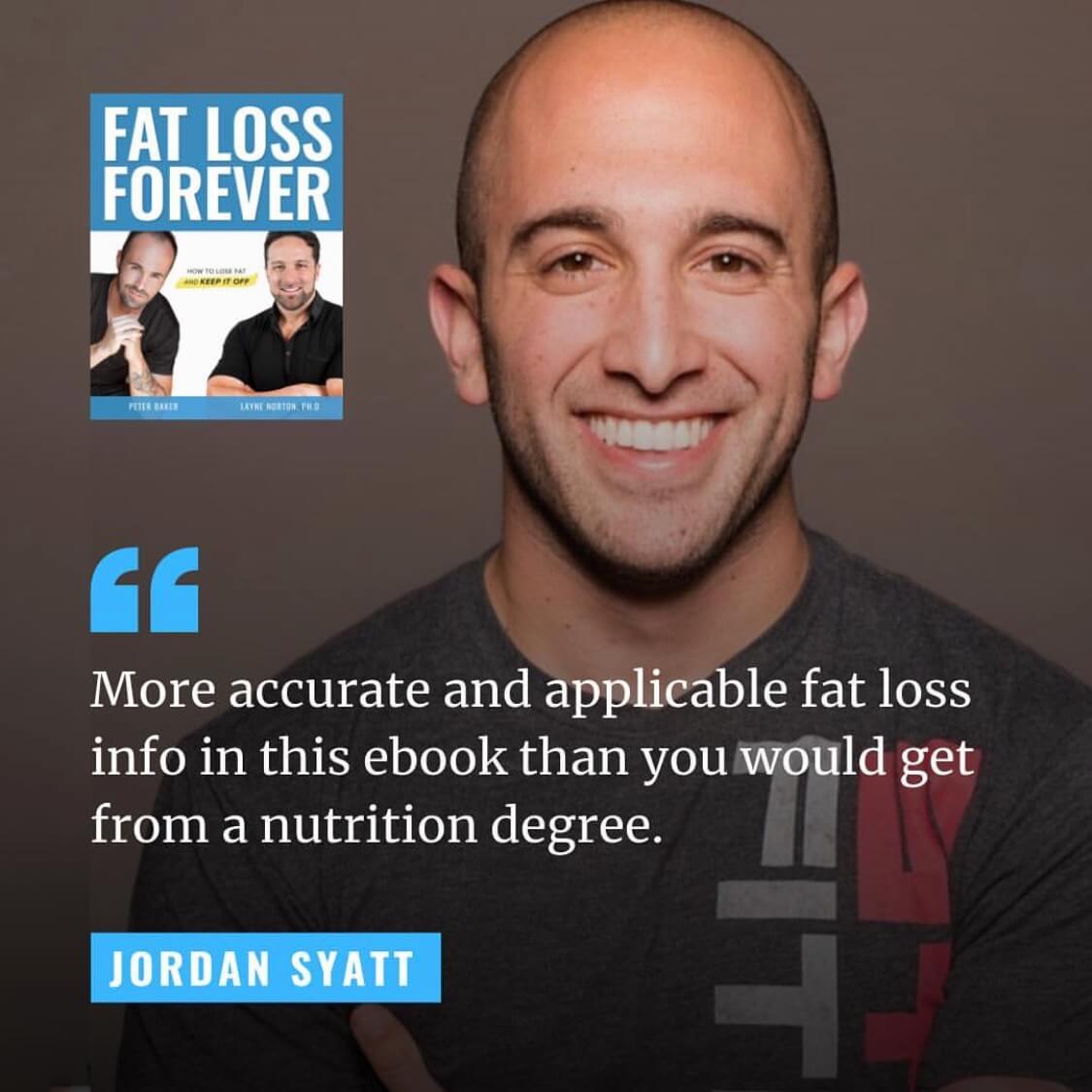About 6 weeks ago I started hearing rumblings about an upcoming ‘documentary’ produced by James Cameron and Arnold Schwarzenegger about vegan athletes. Now those are some heavy hitting hollywood names so there was a lot of buzz about this documentary. I must admit, when I first heard about this, I was extremely skeptical. I am pretty sure I have PTSD from the terrible food ‘documentaries’ I’ve seen so far such as Fed Up, What the Health, and Supersize Me. All of them steaming piles of propaganda and BS. A real documentary takes opinions from both sides, presents evidence, and lets the viewer formulate their own opinion. These were not documentaries, they were story-based narratives that twisted scientific information for their own personal gain.
A real documentary takes opinions from both sides, presents evidence, and lets the viewer formulate their own opinion.
Presenting accurate scientific information isn’t sexy. It’s sexier to scare people and fear monger to get views. When I first found out about this film (I’m not going to refer to it as a documentary), I said it seemed disingenuous that a man (Arnold) who built an entire empire in the fitness industry and then the world, did so through eating meat and in the last part of his life is now going to espouse the virtues of a vegan diet. I was immediately admonished by some in the vegan community for my statements with them saying that I hadn’t even seen the film so how could I have an opinion? Fair enough. So I decided to watch it and form an opinion since it seemed to convince so many people. Here is my scientific analysis of the film and it’s claims.
First, I want to get my biases out of the way. I am not vegan. I have never been vegan. Some of my research in graduate school was sponsored by the Egg Nutrition Center as well as the National Dairy Council. If you believe that means I’m bought and paid for by ‘big animal’ there’s probably nothing I’m going to say that you are going to listen to anyway. But I am going to list all my references with clickable links so you can read for yourself and make your own decisions. Also, keep in mind I have been extremely critical of low carb zealots and carnivore diet idiots in the past. [1][2][3] I’m not married to an idea and I will concede when there is evidence to the contrary. I’ve even coached people who have been vegan. Yes I have my biases. So does everyone. I am being honest about my biases, which is more than I can say for The Game Changers film. Let’s review their undisclosed conflicts of interest shall we?
Unmentioned Conflicts of Interest
- James Cameron, Executive Producer – You know him for his films (Titanic, Terminator 2: Judgment Day, and Avatar), but he also is the founder and CEO of Verdiant Foods, an organic pea protein company [4]
- Suzy Amis Cameron, Executive Producer – Founder, Verdiant Foods
- Jackie Chan, Actor and Vegan
- Arnold Schwarzenegger, Actor, part owner of ‘Ladder’, a supplement company that sells some vegan products
Virtually all of the ‘experts’ interviewed in the film sell vegan products, books, or profit from veganism
- Dr. Dean Ornish – Author of Undo-it!, leads vegan retreats and sells online programs and developer of the Ornish Diet (very low fat, high carb, low protein)
- Dr. Aaron Spitz – Author, The Penis Book, a plant based book on penile function (yes you read that right… just wait)
- Dr. Robert Vogel – Author, The Pritikin Edge, a plant based book.
- Dr. Caldwell Esselstyn – Author, Prevent and Reverse Heart Disease, Cookbook, a plant based cookbook
- Dr. James Loomis – Contributor to forksoverknives.com, which includes plant based meal planning
- Dr. Kim Williams – Vegan Cardiologist
- Dr. Columbus Batiste – Contributor to forksoverknives.com
Now I have no issues with people having conflicts of interests or bias. I have my own biases and I make money in the fitness industry. The difference here is that I am honest about my biases and COIs. There was absolutely no disclosure of the conflicts of interest in this film. We talk about this more in depth later when they criticize the meat and dairy industry for their funding of research, more on that later. With all of that out of the way, let’s get to the main claims of the film.

James Wilks narrates the film. Wilks is a former UFC fighter who spends a bit of time talking about his upbringing and then talks about how he sustained an injury that required surgery. During his recovery he immersed himself in over 1000 hours reading scientific journals on nutrition during his 6 month recovery. Now maybe he truly did read all these studies, but I can tell you that if he spent 1000 hours reading studies he might has well went for a PhD. 6 months is roughly 180 days. Let’s assume 16 waking hours over those 180 days. 180 x 16 = 2880 hours. I would assume that he would spend at least 2 hours per day waking up, showering, eating, etc. 2880 – 360 = 2520 hours. 1000/2520 = ~40% of his available waking hours (assuming he did nothing else) was reading scientific literature. Now call me crazy, but this smells a bit fishy right off the bat. He then claims that he came across a study that showed that gladiators were vegan. What they cited in the film wasn’t actually a study, it was simply an article. I looked up the study that the article referenced and it hardly concluded that gladiators were vegans, and unless James has a background in stable isotope science, I doubt he’d be able to make much sense of their findings. But hey, maybe he’s a man of many talents. Now we get into the meat of the claims.
Gladiators were Vegan
The paper examined gladiator bones that were exhumed from a gladiator burial site in Ephesus. [5] To say the film took some liberties in claiming that gladiators were vegan is putting it mildly based on the results of this study. They concluded that it was likely that the gladiators from Ephesus ate a primarily plant based diet. Based on the amounts of nitrogen found in the samples it was also likely that they ate some animal products. Interestingly, other burial locations showed higher concentrations of nitrogen, indicating higher protein consumption. In fact, samples from Thebes shows sulphur concentrations indicating a diet rich in seafood. [6]
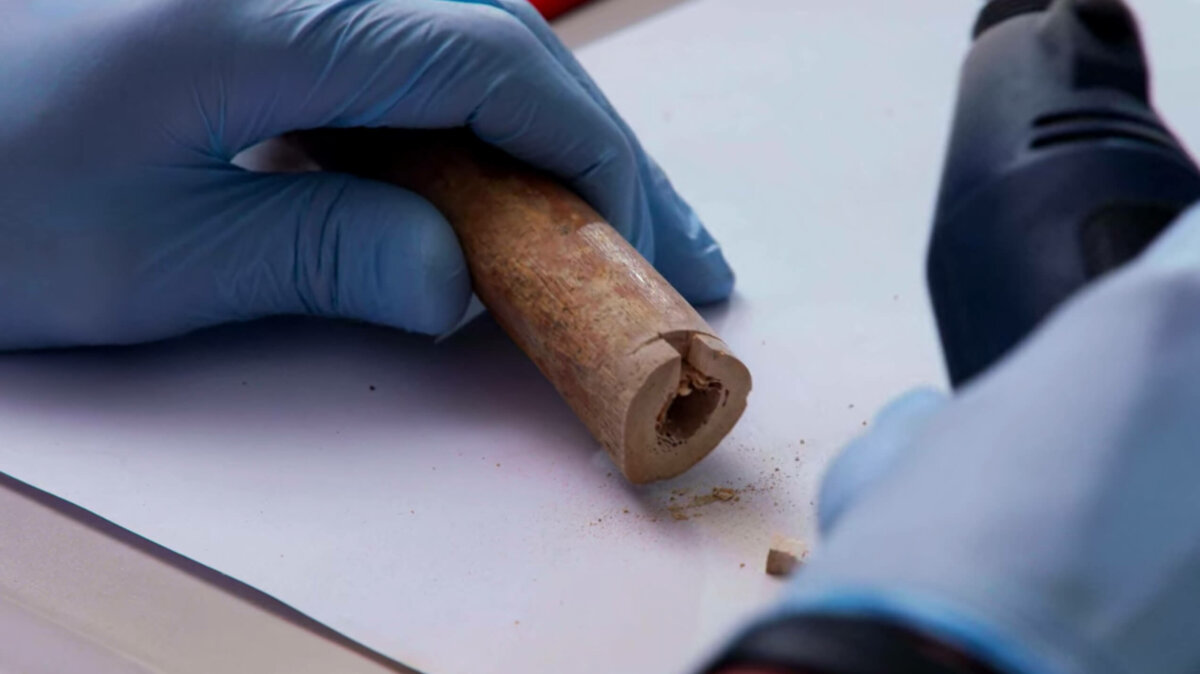
The study suggests that the gladiators ate what was most available to them, which makes sense. A good portion of the gladiator population were slaves and keeping them alive was expensive. A plant based diet was likely plentiful and cheap, whereas feeding large amounts of meat would have been much more expensive. Why was the information about the nitrogen contents of bone and seafood consumption at Thebes not mentioned in the film? There are one of two possibilities here. 1) Wilks/filmmakers did not bother to track down the actual scientific paper and just reported what they wanted or 2) they did read it and purposefully omitted that information. One is incompetence, the other is flat out misleading, which is odd considering their film is ‘fueled by the truth.’
They featured Fabian Kanz in the film, one of the authors of the paper who appears to jive with the vegan rhetoric, however after viewing the film it’s entirely likely they prodded him with questions to get him to say what they wanted and then cherry picked which statements of his they liked and agreed with. Oddly, we didn’t hear anything from his collaborator Karl Grosschmidt. Probably because Grossschmidt is on record as having said
“The vegetarian diet had nothing to do with poverty or animal rights. Gladiators, it seems, were fat. Consuming a lot of simple carbohydrates, such as barley, and legumes, like beans, was designed for survival in the arena. Packing in the carbs also packed on the pounds. “Gladiators needed subcutaneous fat, a fat cushion protects you from cut wounds and shields nerves and blood vessels in a fight.” [7][8]
The film doesn’t discuss this at all which again doesn’t make sense if they are attempting to film a documentary which is supposed to be unbiased.
Protein as Fuel
The film then takes a bit of an odd turn by discussing the idea that people believe that protein is fuel for exercise. This is an antiquated idea that was put to rest over a century ago. I don’t know of anyone who believes that protein is actually fuel for endurance exercise, but here is Game Changers talking about how protein is not fuel for endurance exercise. Go ahead and file that right under the ‘no shit’ category. People don’t eat protein as fuel to begin with. Even so, protein can be converted to glucose via gluconeogenesis. For an athlete like Scott Jurek, an ultrarunner and vegan who is featured in the film, it probably doesn’t make much sense to eat a lot of extra protein since he is better off consuming carbohydrates to fuel his endurance race.
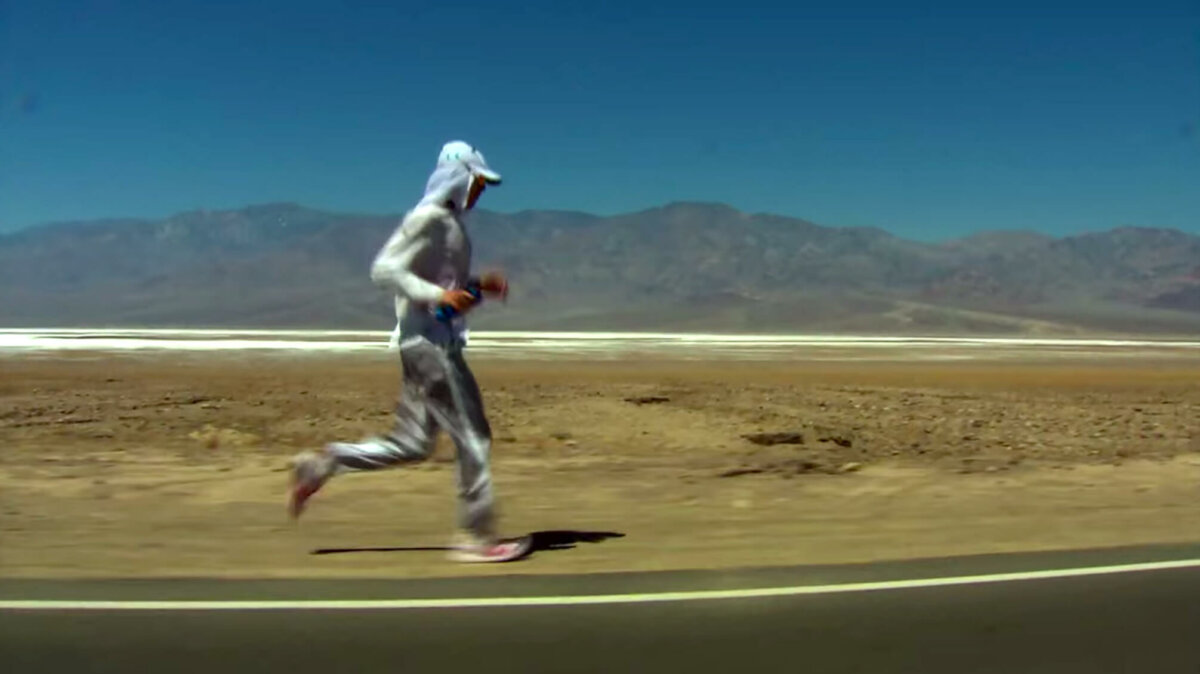
Athletes use protein to enhance lean body mass (LBM) and recovery, not for energy. It’s worth noting that various studies have shown an increased need for protein in endurance athletes to prevent deficiency (1.6-1.8g/kg). [9] Just for reference, the RDA for protein is 0.8g/kg. [10] This challenges the films narrative that vegans get more than enough protein if we are talking about athletes. A large survey of vegans put their average protein intake at 83g/d. [11] For a 75kg athlete that would equate to ~1.1g/kg, over 30% below their daily requirement.
Omnivores, on the other hand, had an average intake of 113g/day (36% more than vegans), which would be 1.5g/kg which is closer but still a bit shy of this recommendation. Throughout this film they seek out many vegan athletes and show them performing at a high level in an attempt to convince you that veganism must be some kind of magic elixir for athletic performance, but this is an example of bias confirmation. If you set out with the goal of finding evidence that supports your bias, you always will. Low carb proponents do the same thing and can highlight various successful ultra endurance athletes who compete and do extremely well even on a low carbohydrate diet, such as Zach Bitter. [12]
While endurance athletes may benefit from a greater ratio of carbohydrate to protein, athletes looking to maximize lean body mass certainly need to include adequate protein. Conservative estimations for maximizing LBM in athletes who resistance train is 1.8g/kg. [13] However, a systematic review indicated that for athletes who energy restrict (aka diet to make weight classes etc) and resistance train may benefit from protein intakes of 2.3-3.1g/kg for optimal LBM. [14] That is, the MMA fighter who is trying to make the 205 lb (93kg) weight class and must diet to do so would have an optimal protein intake of 214-288g per day to retain maximum lean body mass. That is 3x what most vegans consume (also worth noting that it’s way more than the average omnivore consumed).
Increasing protein depletes muscle glycogen
In another outright misrepresentation of the scientific literature, Dr. James Loomis claims that if you increase protein consumption in place of carbohydrate, you deplete muscle glycogen and impair performance. This is only the case on very low carbohydrate diets, i.e.where carbohydrate makes up less than <20% of total calories and ‘deplete’ is probably still too strong of a word. The research demonstrates that the muscle glycogen levels of people who begin a ketogenic low carb diet initially fall to 57% of pre keto levels during the first few weeks of the diet. [15] After 6 weeks however, the glycogen levels climb back to 69% of the original level. So while low carb diets are not optimal for maximizing muscle glycogen, they don’t deplete it either. That said, the film does an excellent job of creating a false dichotomy where you can either have high carb/low protein or high protein/low carb, but those are not the only two options.

In fact, high protein doesn’t appear to impede post exercise glycogen restoration when carbohydrate intake is sufficient. In studies comparing post exercise consumption of carbohydrate alone or carbohydrate PLUS protein demonstrated that the combination of carbohydrate plus protein actually produced the same or greater response in glycogen resynthesis. [16][17][18] In fact, post exercise protein in combination with carbohydrate was shown to improve subsequent day exercise performance more than carbohydrate alone. [19] Finally, protein aids glycogen resynthesis if not enough carbohydrate is available. [20] So saying that protein depletes muscle glycogen is, at best, a complete misrepresentation of the scientific literature, and is, at worst, an outright lie. Based on the current data, endurance athletes should likely consume a diet containing high carbohydrates, adequate protein, and low fat.
Cherry Picking Athletes
A large portion of the film is devoted to examples of various elite vegan athletes. I think this actually should have been the crux of the film. They could have used this film to demonstrate that someone can be vegan and still perform at a high level. Alas, that was not good enough and they had to go with outrageous claims of veganism creating superior athletes. Perhaps the most ridiculous display of confirmation bias in the entire film was their discussion of the Conor McGregor vs. Nate Diaz fight. Diaz does not eat meat while Conor is shown eating steak and even saying that he eats it every day.
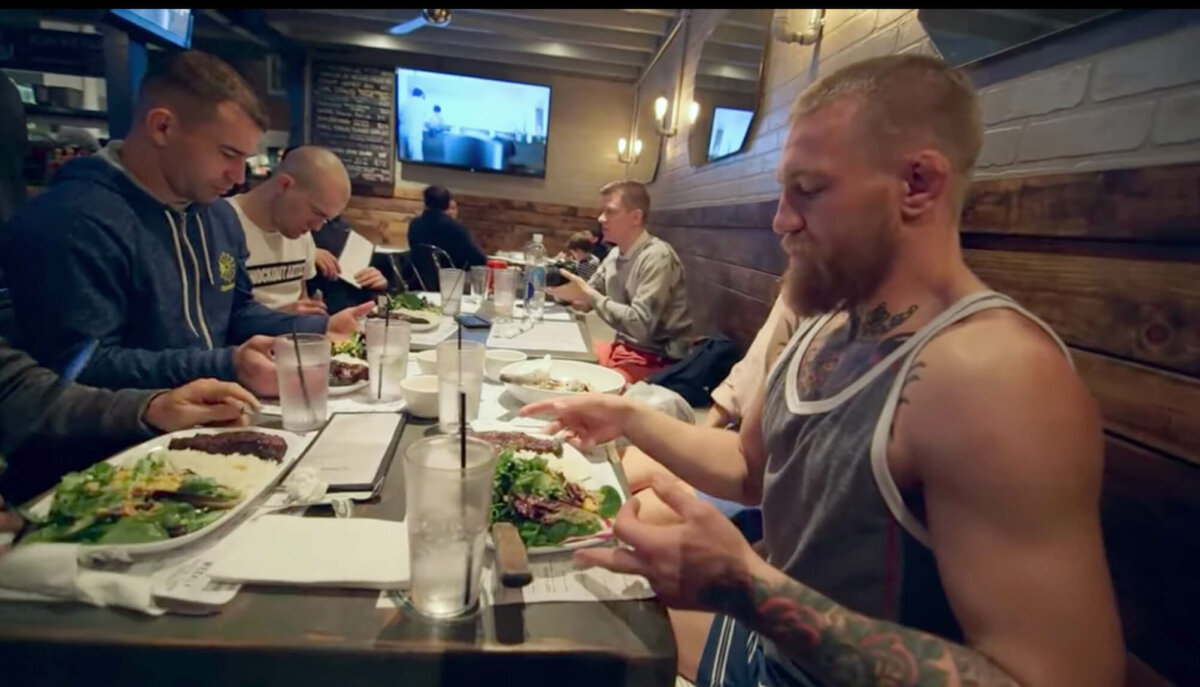
Diaz went on to upset McGregor in the bout and the film implies that Diaz won because he doesn’t eat meat. The film even went so far as to say that maybe Conor ate one too many steaks. This example is so ludicrous and hypocritical on so many levels, but let’s handle the basics first. There is no mention of their training, their background (Diaz also runs triathlons and has excellent cardio while Conor is known to gas often). Further, Diaz is a terrible match up for McGregor because of his style. McGregor is a stand up fighter who is good at knocking people out on his feet, but Diaz is also a very good boxer with an unbelievable chin.
It was unlikely McGregor would be able to knock him out. Further, Diaz is a master of brazillian jiu jitsu and if the fight went to the ground, Diaz would have a huge advantage, which is exactly what happened. There is also no mention of the fact that Conor went up 2 weight classes to make this fight. Diaz would have outweighed him in the cage by likely 20-30 lbs. Further, what about all the people who have beaten Diaz (he has 11 losses)? Were they all just better vegans than him? Finally, they don’t mention the rematch, where McGregor emerged victorious. To make the implication that Diaz won that particular fight because he didn’t eat meat was simply ridiculous.
One may be swayed by all the examples of elite athletes shown in this film, but this is simply an example of confirmation bias. If I went on a hunt for impressive ketogenic athletes I can find them. Keep in mind they hand picked these athletes, these were the best they could find. If we are going to value anecdote over research data I could easily make cynical points such as, where are all the legions of gold medal winners? Where are all the NFL MVPs? I’m not saying you can’t be an elite athlete and be vegan, you certainly can, but you can also be an elite athlete and NOT be vegan, which are the majority of elite athletes. Did these athletes win because they went vegan? It’s highly unlikely, there is no empirical evidence showing subsequent superior performance for vegan athletes compared to non-vegans. They use Kendrick Farris as an example of a top weight lifter, but his best placing in the olympics was 8th. Impressive, no doubt, but where is the big leap in performance from turning vegan? I also found it interesting that they did not bring up the 2012 gold medal winner in Farris’ class, Ilya Ilyin who is also vegan? Probably because Ilya failed the drug test. Gee, I wonder why they never brought that up? I’m not trying to imply all vegan athletes are on drugs, I’m simply highlighting another example of cherry picking the facts that they wanted to show. What about Usain Bolt? The fastest man on the planet who says he ate over 100 chicken nuggets per day at the Beijing olympics!? If meat and protein were as terrible for performance and dietary intake is as important as this film claims, how could he possibly win gold?
All Protein Comes From Plants So We Don’t Need Animal Protein
The film begins to weave in another narrative fallacy. The fallacy being that plant protein and animal protein are really no different and if anything, plant protein is better. That is a flat out misrepresentation of scientific data. There are several reasons why plant protein may be inferior to animal protein. The first being that most plant proteins are far less bioavailable than animals proteins on the average of about 10-40% depending upon the source. [21] Further, most plant proteins are limiting in various essential (meaning we need to get them from the diet) amino acids. Rice protein is deficient in lysine, pea contains about half of the minimum methionine content, and soy, while low in methionine, has just enough not to be considered deficient. [22] Further, most plant proteins are low in leucine, the essential amino acid responsible for stimulating muscle protein synthesis. [23] Now, if you eat enough total protein from a variety of plant sources you can make up for these limitations. For example, in my PhD thesis, we found that consuming a diet containing 30% of calories from wheat protein was sufficient to maximize protein synthesis, whereas at 10% & 20% of calories from wheat protein, animal protein was superior compared to wheat. [24][25] So you CAN get maximal anabolism from vegan protein sources, but you will need more total protein, and a much more well thought out diet to do so. However, keep in mind that on average, vegans only get about 14% of their calories from protein. At these low levels of protein, the quality of protein becomes even more important. Do we need animal protein? No. But is it a superior source of essential amino acids? No question, especially when total protein in the diet is low.
A Peanut Butter Sandwich has as much protein as 3 eggs or 3 oz steak
This one blew my mind that they even put it in the film. I can’t imagine who actually bought into this but ok, I’ll play.

3 eggs at minimum will have 18g of protein, it could be up to 27g protein depending upon the size of the egg but we will play the low end to give peanut butter chance. 3 oz of steak on average has about 21g protein but I will be generous and say that it’s only has 18g. The average 32g serving of peanut butter has 8g of protein (along with 16g fat and 6g carbohydrate).
If we assume the sandwich has 2 pieces of bread which on average each slice contains 4g protein, 14g carbohydrate, and 1g fat. You’d need 1.25 servings of peanut butter to get 10g of protein and you can get the other 8g from the 2 slices of bread. So yes, a peanut butter sandwich has about the same amount of protein as 3 eggs or 3 oz sirloin. But here is why that comparison is asinine: The 3 eggs would have ~200 calories and even a very fatty 3 oz cut of steak would have 228 calories (a lean sirloin would only have (149 calories, 5g fat, and 26g protein). The peanut butter sandwich would have a whopping 412 calories. Double what the eggs or steak have and did I mention that the peanut butter sandwich would have 25% MORE fat than even a fatty cut of steak?
Strongman Footage
Following up on their claims of vegan protein superiority they show a few strength based athletes including Patrick Baboumian who claimed he gained 25kg when he switched to a vegan diet. Now 25 kg is a lot of weight and what’s not disclosed is the fact that the Strongman organization that Patrick competes in does not drug test. Can I say for sure he’s using steroids? No. But based on anecdotal reports of what strongmen use, it certainly is not difficult to believe. Regardless of that, if we examine his ‘vegan’ diet, we also find that they do not disclose that Patrick chugs 4 protein shakes per day to pump his protein up to a WHOPPING 410g per day! [26]
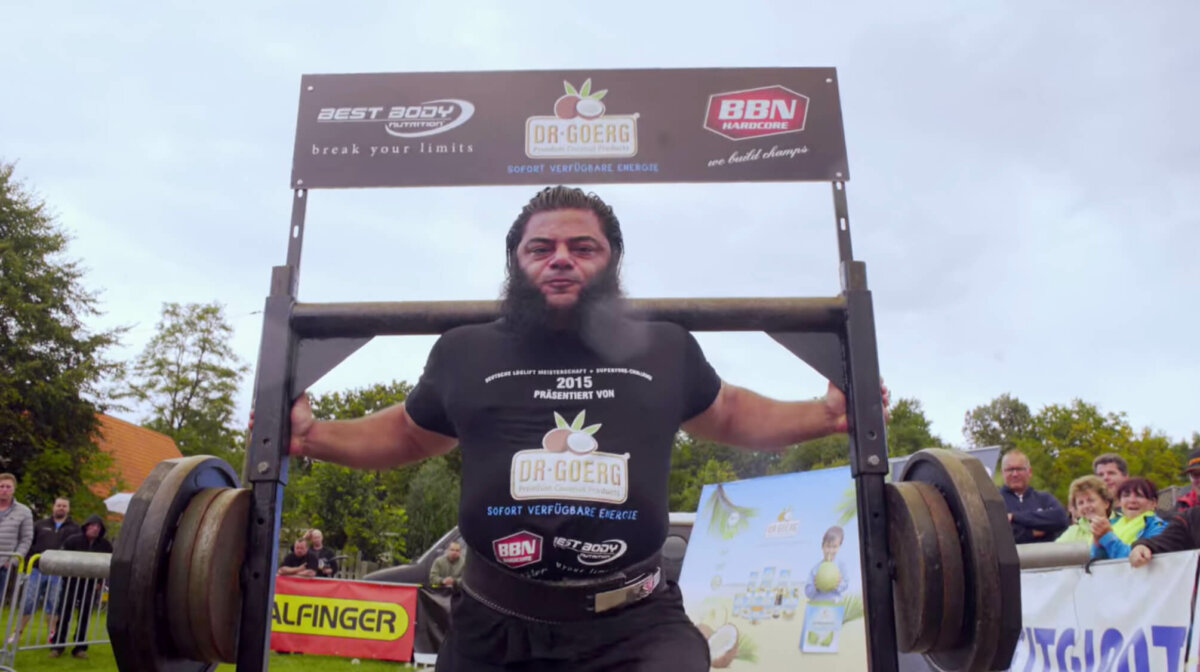
Broccoli didn’t build those biceps. So he’s artificially elevating his protein, which is a good idea for someone who is vegan and wants to build LBM and strength, but why doesn’t the film disclose this? Part of the triumphant climax of the film is Patrick, carrying 1223 lbs which is heralded as a world record in the film. He broke the record in 2013, so what was shown in the film was an obvious re-enactment. What the film failed to disclose was that both Brian Shaw and Hafthor Bjornsson have carried 1565 lbs in 2017, over 300 lbs more than Patrick’s record. [27] Both Shaw and Bjornsen are known to eat copious amounts of meat. [28][29]
They also highlight Bryan Jennings, a vegan heavyweight boxer who they note went the distance with Wladimir Klitschko, “one of the greatest boxers of all time.” It’s worth noting that Klitschko eats quite a bit of meat. Now I don’t think that Jennings lost because he’s vegan and I don’t think Klitschko won because he ate meat. [30] But isn’t it interesting how they spin the narrative to fit their bias? When Conor McGregor loses, it’s because he had too many steaks. When Bryant Jennings is defeated there is no mention of Klitschko’s diet, only that he’s one of the greatest boxers of all time. This is just another example of the narrative weaved throughout the course of this film.
The Burrito Experiment Part 1
This part of the film was meant to be very compelling. Members of the Miami Dolphins show up to Dr. Robert Vogel’s office to have their blood tested after a meal with 3 different burritos: 1 vegan, 1 with chicken, and 1 with beef. Vogel spends a lot of time talking about the endothelium and vasodilation and mentions that animal products ‘clog’ the arteries and reduce vasodilation.

The blood test they run really isn’t a test at all, they simply take their blood and centrifuge it to show the serum. Low and behold, the vegan serum is far clearer than the serum from those that consumed the animal burritos whose serum was cloudy. Convincing right? This was a classic example of a bait and switch. Vogel spoke at length about the endothelium and vasodilation but then did not measure ANYTHING pertaining to vasodilation or endothelial function. [31] The reason the serum from the meat eaters was cloudy was likely because those burritos contained more total fat. Fats from the diet are packaged into chylomicrons which cause the serum to appear cloudy after a high fat meal. The narrator references a study which shows that avocado improved endothelial function. This study he referenced was a pilot study of 11 people and funded by the Hass Avocado Brand. Now, I normally don’t like to default to funding source as a criticism because I think it’s a lazy criticism. However, later in the film they make it a point to go after any research in support of animal products and health implying that these studies can be dismissed since they are funded by the animal industries.
It’s interesting that funding source matters when they don’t like the data, but then they choose not to disclose the funding sources on the studies that they choose to cite. Further, there is data showing that low fat animal sources of protein such as dairy, fish, turkey and chicken do not have worse effects on endothelial function than low fat non-animal source of protein. [32][33][34] Even consumption of lean beef has been demonstrated to reduce systolic blood pressure and vascular constriction. What is more important is the total calorie and fat content of the diet, that likely drives vasoconstriction and endothelial dysfunction, NOT animal protein.
Beetroot Bench Press
In an effort to really play up the performance enhancing effects of plants, James mentions a study which demonstrated that beetroot juice can improve your bench press by 19%. [36] There are a few things to unpack here. The first is that the film actually shows the wrong citation. The citation given by the film is a review in the JISSN which cites the study that James is referring to. After I hunted down this reference in the Journal of Strength and Conditioning Research, I realized that it was drastically misrepresented (surprise surprise). If beetroot juice could boost your bench by 19%, that means my piddly 386 lb bench press at USA Powerlifting Nationals could have been a massive 459 lb bench press, which would have thrust me from 12th place in the 105 kg class into the top 6 and given me the 5th best bench press in the entire country at that weight class. Alas, this is not what the study actually shows.
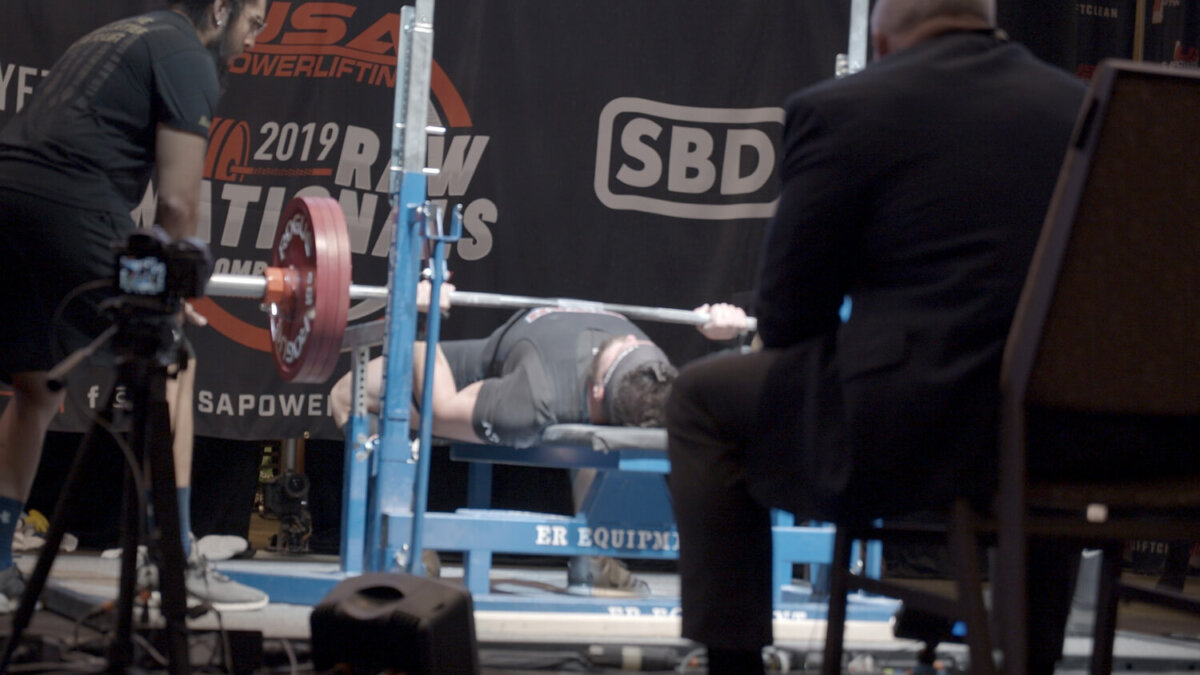
The study had participants supplement with either beetroot juice or placebo and then complete 3 sets to failure with 60% of their 1 rep max. The supplement group completed 19% more repetitions in total, indicating that beetroot may indeed have some anti-fatigue benefits when consumed as a supplement, but this is far from the massive strength increase claim made by the film. Once again, the reality is far different from what is portrayed by the film. I guess James must have missed that in his 1000 hours of reviewing scientific studies. It’s also important to note that the study did not find a difference between groups for indicators of muscular fatigue, proposed no mechanism to explain the differences, and the results of this study have not been replicated. At best it appears beetroot juice supplements may have an anti-fatigue effect, but they aren’t going to add 19% to your bench, sorry.
Animal Protein Increases Inflammation
The film then turns its focus to inflammation. There is considerable observational evidence and mechanistic evidence to suggest that low level, chronic elevations in inflammation may contribute to various diseases such as cardiovascular disease, type 2 diabetes, and others. They make it a point to focus on animal sources of proteins, but as with most of the film, they focus on epidemiological, association data. While epidemiology is useful to propose questions for further research, it does a poor job at establishing causation (it’s not meant to). Correlations make for big headlines, but as we will discuss later, correlation does not equal causation due to numerous confounding variables that interfere with the study outcomes. There are MANY insane things that correlate with each other way more tightly than meat and disease. For example, US spending on science, space, and technology, nearly perfectly (99.79%) correlates to suicides by hanging, strangulation, and suffocation. [37] The age of Miss America pageant winner correlates 87.01% with murders by steam, vapor, and hot objects. That’s not to say we should dismiss epidemiology outright, but rather we should use it to ask questions and conduct controlled trials.
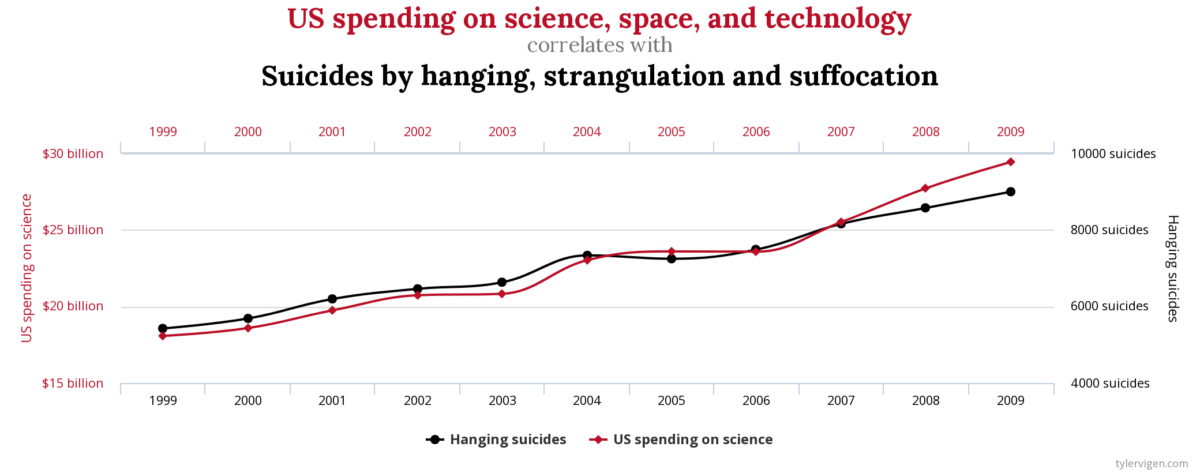
So what do the controlled trials say about meat and inflammation? Well there is some evidence that substituting red meat with soy protein sources reduces inflammation as well as a few other studies showing similar outcomes. [38] Case closed right? Not really. The film does a good job making sure they typically site research using sources of meat like hamburgers or other high fat, high calorie sources of food when investigating the effects of meat on health. One of the biggest drivers of inflammation is weight gain, and vegans consume over 600 calories LESS per day than omnivores. [39]
This is a huge reason why vegan diet is associated with better health outcomes. As such, a cohort study examined the relationship between relationship between red meat, BMI and inflammatory markers (CRP, TNF-?, and IL-6) in 1223 subjects. They did indeed find that red meat intake was associated with markers of inflammation, HOWEVER, when they corrected for the differences in BMI, the associations between red meat and inflammatory markers were no longer significant, while the associations between BMI and inflammation were. [40] This suggests that inflammation is driven by increases in body fat, not necessarily red meat. Interestingly, a systematic review of over 1100 studies demonstrated that there was no difference in inflammation in healthy subjects who consumed more than 9oz of red meat per week than subjects who ate less than 9 oz red meat per week. [41]
Additionally, none of these studies controlled total calories. Perhaps even more relevant was a recent randomized control weight loss trial where researchers had type 2 diabetic subjects split into two high protein (30% of total calories from protein) weight loss groups: one consuming protein predominantly from animal protein and another group consuming protein from plant protein. [42] These diets contained the same total calories, protein, carbohydrates, and fats. The only differences were the protein sources. Both groups lost the same amount of weight and low and behold both groups DECREASED inflammation to the same extent. This suggests that the anti-inflammatory benefits to a vegan diet are likely simply due to vegans consuming less total calories than meat eaters. However, meat eaters can likely enjoy the same health benefits so long as they do not consume too many overall calories and live a healthy lifestyle.
Interestingly, later in the film, the wife of a vegan NFL player can be observed cooking vegan ‘healthy’ meals for some of the team including vegan chicken wings, vegan mac and cheese, vegan burgers and vegan peanut butter cheesecake. All of these foods are heavily processed and very calorically dense, but are implied to be ‘healthy’ since they are vegan. A study examining inflammatory responses to vegan cheese vs. regular cheese paints a different story however. In this study they fed overweight people either regular cheddar cheese or vegan cheese and examined the inflammatory response. [43] They found that the vegan cheese actually caused a greater increase in the inflammatory marker CRP than the regular cheese! Shockingly, the film didn’t feel the need to include this study in their discussion of the research.
James’ Epic Battle Rope Session
The narrator then talks about his recovery from injury while switching to a vegan diet. He mentions that the battle ropes in his gym are legendary and that anyone who can go more than 10 minutes on the ropes gets their name on the wall. We then see James going at the battle ropes for a short while and he then claims he went over an hour and could have gone longer. More anecdote, surprise surprise. First off, let’s make something very clear. James has been vegan since 2011, which is also when his injury occurred. This battle rope scene was clearly staged (an hour on the battle ropes and he was hardly sweating?) and we are taking the word of someone who is clearly comfortable with cherry picking data and misrepresenting scientific studies to push an agenda. If you’d like to believe him at his word, fine. Maybe he did go for an hour, maybe he didn’t. But I’m pretty skeptical. I’m also pretty sure I could find a consumer of animal products who could also go for a similar amount of time.
Animal Protein and CVD/Cancer
After our battle rope anecdote we are back to more ‘science.’ In this section the film discusses how animal protein but not plant protein is linked to cardiovascular disease (CVD) and claim that a plant based diet is the only diet that has been shown to reverse heart disease. Yet another mischaracterization of the research. As we have already established, meat eaters tend to eat more calories, gain more weight, and be more prone to heart disease, but as we demonstrated with the data on inflammation, this is a problem of excess energy intake and its associated weight gain, not because animal protein is somehow inherently inflammatory. What about CVD? While fatty meats are associated with increases in total cholesterol and LDL, lean meats do not have the same effect of increasing blood lipids. [44] There is also evidence that fish, even fatty sources of fish such as salmon which contain the essential fatty acid omega 3, may decrease CVD risk. [45] Further, consumption of lean beef (113g per day) as part of a healthy overall diet has been demonstrated to decrease cardiovascular risk and improve blood lipids. [46] Interestingly, a Mediterranean diet (high protein from lean meats, low saturated fat, moderate carbohydrate and fat intake) has been demonstrated to improve CVD markers in a recent review of over 45 studies. [47] Wait, I thought they said a vegan diet was the only one that reverses heart disease? Once again, I find it odd that The Game Changers would leave this information out if they were truly attempting to discover ‘the truth.’
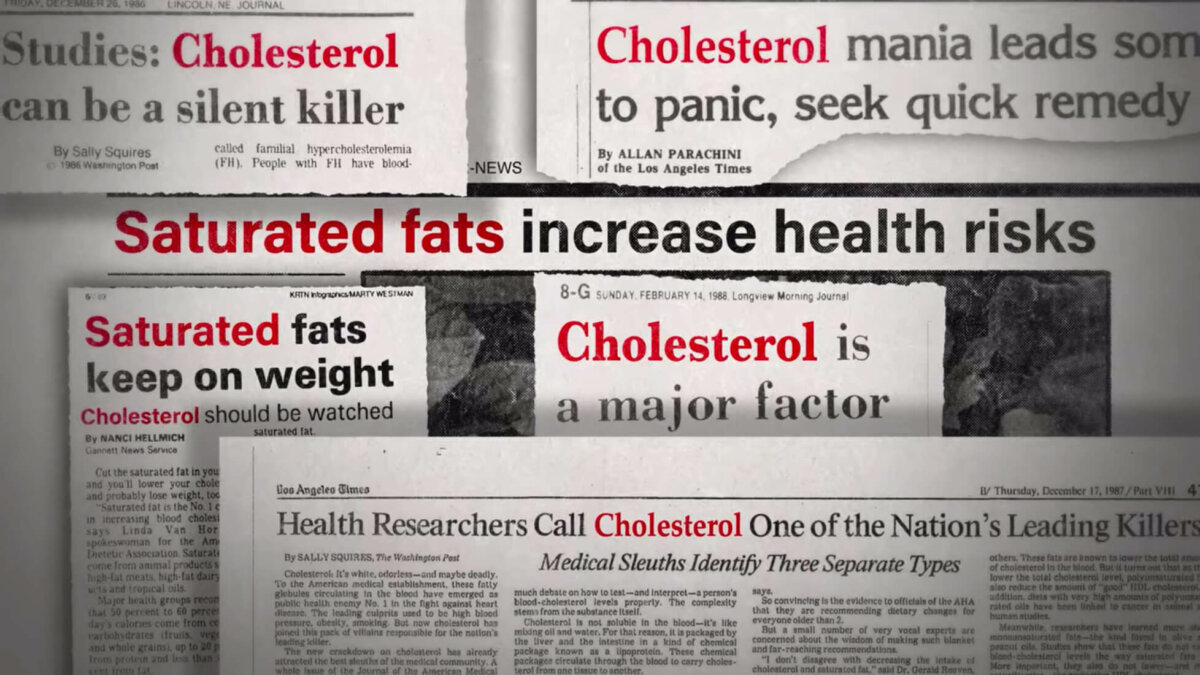
To keep the fear train going they then discuss cancer. They claim that “the amino acids that come from animals tend to make our cells multiply more rapidly.” Wait, aren’t these the same amino acids that you said you could easily get from plant proteins earlier in the film? Specifically, they are referring to an amino acid called leucine, which stimulates muscle anabolism through a complex known as mTOR (mammalian target of rapamycin). Now this stuff is right in my wheelhouse. A large chunk of my PhD thesis was spent studying this pathway, if you are interested you can read all my thesis.
Now they make this claim because inhibiting mTOR is one of the therapies out there for cancer. In fact, rapamycin is an anti-cancer agent. [49] This is a really large leap of logic however, that has many holes in it. The first being that the leucine stimulation of mTOR is brief, lasting only a few hours before returning to baseline. [50] This is very different than chronic, long term elevations in mTOR that may be linked to cancer. A great comparison is inflammation in response to exercise. We know that chronic inflammation is a very bad thing. However, a bout of exercise will drastically increase inflammation (as well as blood pressure, reactive oxygen species, heart rate and a whole host of other metrics thought to be ‘bad’ for health) in the short term. [51] But when we take measurements of inflammatory markers in people who exercise they are lower than the average non-exercising person. [52] This is because there is a big difference between an acute response and a chronic response. Additionally, resistance training increases mTOR stimulation for DAYS post exercise. [53] If their claim of mTOR and leucine were legit we would expect to see people who resistance train have higher rates of cancer as well, but we don’t. People who exercise have LOWER rates of all cause mortality including cancer. [54]
They then flash a lot of studies on the screen to scare you about red meat and cancer. Virtually all of these studies are epidemiology studies. As we mentioned previously, it is difficult to draw conclusions from epidemiological studies due to confounders. Vegans have a higher rate of ‘health seeking behaviors.’ That is, a vegan diet is already a very restrictive diet, and people who select it are much more likely to pursue other healthy behaviors like limiting their calories and exercising. In contrast, people who eat high amounts of meat tend to eat more calories (~600 more per day on average), exercise less, eat fewer fruits and vegetables, eat less fiber, and engage in other non-health seeking behaviors, like smoking. This makes it difficult to determine if the increased rates of disease are caused by meat, or by these other parameters.
Fortunately, there are studies that attempted to control for these confounders in an elegant way. One such study in the UK recruited 11000 health seeking vegetarians and health seeking non-vegetarians by recruiting them from health shops and various societies. [55] In a 17 year follow up they found no difference in the mortality rates between health seeking vegetarians and non-vegetarians. This suggests that it is the health seeking behaviors like calorie control and exercise that improve health and protect against disease, not the omission of meat. Indeed, in another massive study examining mortality rates of over 243000 people age 45 and older, the researchers found that there were no differences in mortality rates between vegetarians and non-vegetarians. Interesting that film chose to leave these bits of information out and rather focus on associations and small studies that fit their narrative.
Many of the studies they cite are drastically misrepresented. They mention that meat intake increases the risk of various cancers by ~20%. This is a relative risk however. If your absolute risk of cancer is 5% and you increase it to 6%, the relative risk increase is 20% (6-5 5 = 20%). In reality, the risk is only increased 1% and that is not considering all the confounders we previously discussed (less exercise, more calorie consumption by meat eaters). If this increased cancer risk was so legitimate, why do we not see a difference in all cause mortality between vegetarians and non-vegetarians? In perhaps one of the most rigorous systematic reviews ever conducted examining the association between meat and cancer in 56 studies with over 6.1 million participants concluded “The possible absolute effects of red and processed meat consumption on cancer mortality and incidence are very small, and the certainty of evidence is low to very low.” Meaning that the strongest associations between meat and cancer are found in the lowest quality studies with the lowest level of control. In studies that are more tightly controlled and account for confounding variables, the association is minimal or non-existent. Further, on the off chance that meat intake does directly cause cancer (unlikely based on the data), the effect would be extremely small based on the data.
But Gorillas are Jacked Bro
The film oscillates back and forth between anecdote and playing the evolutionary card that people were not designed to eat meat. They make claims about the human jaw and our digestive tract. I’m not an anthropologist but at the end of the day I couldn’t care less about this argument. I care about what the science says regarding animal product intake and health outcomes. In any case, they mention that all cows and gorillas eat are plants and just look at how much muscle they have. This is quite possibly the biggest facepalm moment of the film. Cows are ruminants with multiple stomachs designed to extract amino acids from plant material that would be indigestible to humans. Try eating only grass and let me know how that goes for you.
As for gorillas eating nothing but plants and being jacked, I can’t believe the filmmakers didn’t at least look these statements up to make sure no one like me crushed them for their stupidity.

They obviously did not. Gorillas eat a diet of around 19% protein (5% more than most vegans) when fruits are available. But during the 8 months of the year when fruits are scarce they pump the protein up to almost 30% of their total calories! [58] That is double what the average vegan consumes. As I stated previously, vegan protein sources can maximize anabolism, but you need to consume more of them to get the same anabolic punch that you get from animal proteins. Most of the protein they consume is plant protein but would not be bioavailable to us. Gorillas have specialized digestive tracts and bacteria that are able to extract amino acids out of plants that wouldn’t be digestible for us. I guess the filmmakers didn’t feel the need to include that part. And I mentioned gorillas are jacked. And they are. What few people fail to actually talk about is just how much food a gorilla actually eats in a day. Spoiler alert: it’s a lot. As in approximately 18 kilograms per day for an adult male. That’s 40lbs, if you don’t feel like doing the conversion. [59]
So you have a gorilla eating all those plants, EVERY DAY. But, I’ll make it easy for you. A pound of spinach, a plant food, has about 9.7 grams of protein. 18 kilograms (40 pounds) has 385.7 grams of protein. That’s just to give you an idea of how much protein you can get if you eat 18kg of a plant. However, not all plants have the same protein content, and bamboo shoots happen to be one of the plants gorillas definitely eat. [60] Bamboo shoots happen to have more protein than spinach, and 18kg of bamboo shoots will yield 468 grams of protein. So, yes, gorillas get ample protein, because they eat a lot of food.
Meat Will Make Your Penis Soft – The Burrito Experiment Part Deux
We then get another burrito ‘experiment’ with 3 athletes examining their erections after consuming vegan meals vs. animal based meals. The doctor triumphantly proclaims that the vegan diet is the best for boners. The film also claims that vegans have higher levels of testosterone. One need only look at the references they themselves provided to see this is incorrect. [61] The study cited showed that vegans and omnivores had similar levels of testosterone but the vegans had significantly higher sex hormone binding globulin (SHBG) than the omnivores. SHBG binds to testosterone rendering it inert so while their total testosterone levels may have been similar, the vegans would have less available. If the film had not already been such a hack job, I might be more inclined to give the benefit of the doubt to this ‘experiment’ but being that to this point it was a steaming pile of shit, I do not believe the results of this ‘experiment’ at all.

Vegan Bodybuilders
They then showcase various vegan bodybuilders who built impressive physiques on nothing but plants. Ok cool. As we already discussed you can build muscle as a plant based athlete, you just need to consume more protein since the quality isn’t as good. These athletes are shown without acknowledgement of genetics, training, or the possibility of PEDs. While these anecdotes may seem convincing, there are far more examples of top bodybuilders who eat animal protein so it seems silly to lean on a few isolated cases, but hey, that’s what Game Changers does. Yay anecdote, BOO science (unless the science fits our bias).
Carbs Are Better for Building Muscle
The film makers attempt to weave a narrative into the film that high carb diets are the same thing as plant based and that low carb means high meat consumption. They even cite a study which they claim compared ‘normal carbohydrate’ group to a low carb group and found better muscle building in the normal carb group. [62] Remember the filmmakers have framed it that carbs = plants. However, this experiment didn’t compare meat eaters vs. plant based, in fact it compared a high protein non-ketogenic diet vs. a high protein ketogenic diet with both groups consuming 2g/kg bodyweight protein and both groups consumed animal protein, a fact that the filmmakers decided to omit. Gee, I wonder why? Now I will say that I think consuming a very low carbohydrate diet is probably not optimal for building muscle and it’s probably better to have a decent amount of carbohydrate as part of a diet focused on building muscle. However, the way they attempted to present this study in support of a plant based diet for muscle building is yet another example of them attempting to contort the data to fit their narrative.
Who Really Has the Conflicts of Interest
Since they have tried (and failed miserably) to make this film science based, they default to the lowest denominator of criticism. They claim that the meat and dairy industry secretly fund all the studies that demonstrate any benefits to animal products and compare it to the tobacco industry. First off, this is ironic given that every single expert in the field make money off vegan books or products, including the producer James Cameron who owns a pea protein company. Here is the difference: industry funding for scientific studies isn’t hidden on scientific papers, it’s right on the first page for anyone to see. Further, it still has to go through the scrutiny of peer review, and many of the studies I cited in this document showing benefits or lack of decrements of animal product consumption were not sponsored by the meat or dairy industry. Finally, agriculture sponsors many studies as well, but I didn’t hear James calling for their heads in this film, which is ironic.
Stop Eating Meat to Save the Planet
This might be the one compelling argument to limit meat consumption insofar as raising meat takes a disproportionate amount of land and water, but here again, the filmmakers misrepresent the truth about the impact of meat production on the environment. They claim that the emissions from meat are more than all of the total forms of transportation in the world combined. This is quite simply not true. Meat production accounts for about 3% of the USA’s greenhouse emissions (13-18% in less developed countries), while the energy industry at large is 80% of the greenhouse gases from the USA (64% worldwide). [63] Moreover,
Animal agriculture is responsible for 13–18% of human-caused greenhouse gas emissions globally, and less in developed countries (e.g. 3% in the USA). Fossil fuel combustion for energy and transportation is responsible for approximately 64% of human-caused greenhouse gas emissions globally, and more in developed countries (e.g. 80% in the USA)…The burning of fossil fuels for energy and animal agriculture are two of the biggest contributors to global warming, along with deforestation. Globally, fossil fuel-based energy is responsible for about 64% of human greenhouse gas emissions, with deforestation at about 18%, and animal agriculture between 13% and 18%. [64]
So before you admonish someone for eating meat and how bad it is for the environment, if you drive a muscle car but admonish others for eating meat because of how bad it is for the environment, you might want to look in the mirror.
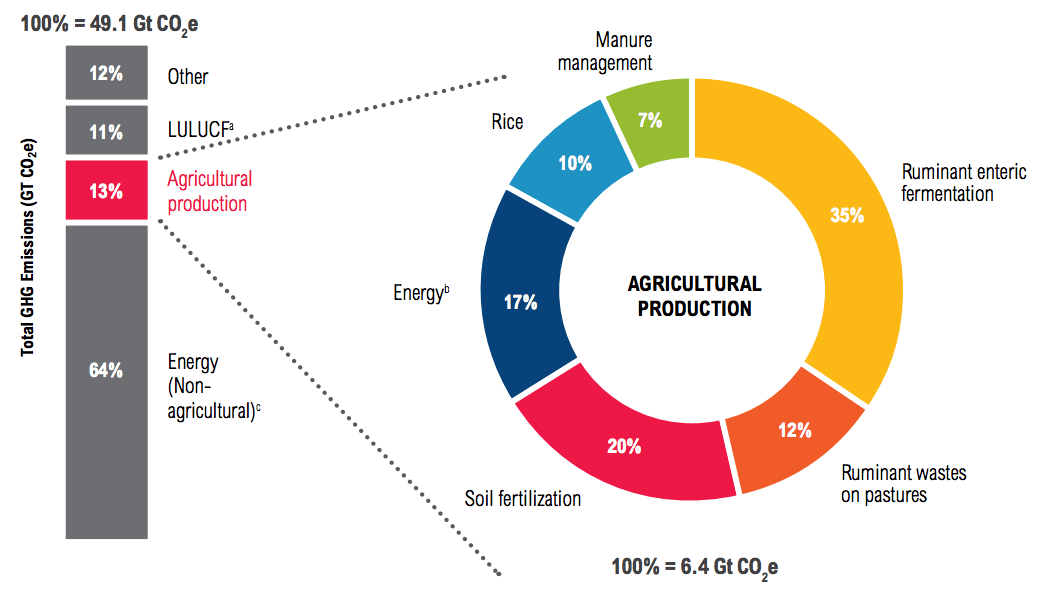
Summary
I was hoping this film would simply showcase vegan athletes and convey the message that one can be vegan and an elite athlete. I wouldn’t deny that and I don’t think most scientists would deny that. It might take a bit more work to ensure that your nutritional requirements are fulfilled but it can be done and obviously has been done by many athletes. Alas, they decided instead to pitch veganism as a fix for everything, from becoming an elite athlete right down to making your dick harder. As I have learned with most things in life, if it sounds too good to be true, it is.
In this case, the film used strawman, false dichotomies, cherry picking, and a whole host of other logical fallacies in an attempt to demonize animals products and make vegan diet the solution to the world’s problems. To be clear, I think a diet that is heavy in plants and fiber is great. I also have no problem with those who choose to not eat meat for their own ethical reasons, it’s not my job to judge your ethics. All I ask is that we are honest about what the science says. If you don’t want to eat meat because you don’t want to intentionally harm animals, that’s great. But do not twist scientific research and retroactively attempt to contort data so that it fits your bias.
I continue to be utterly disgusted by food ‘documentaries.’ As of yet, I have not seen one food film that is anything other than a steaming pile of shit. These are not documentaries. A documentary gives you experts from BOTH sides and then lets you draw your own conclusions. This film would be closest to a comedy, because it’s a joke. I didn’t even address all the ludicrous claims in the video, I simply picked out the most egregious claims. I would have needed to hire extra staff to fully debunk this steaming pile of dung. It helps no one and does not move veganism forward and will do nothing but further confuse the average person through misrepresentation of science and fear mongering.
F-, we are all dumber for having watched this, and may God have mercy on your souls.

References
- “Tag: carnivore diet | Biolayne.” biolayne.com/blog/tag/carnivore-diet/. Accessed 3 Nov. 2019.
- Layne Norton, PhD on Twitter: “I think it’s pretty damned stupid ….” 27 Dec. 2017, twitter.com/biolayne/status/946213991000526850. Accessed 3 Nov. 2019.
- “Science, Stories, and Side-Stepping: The Stephan Guyenet vs ….” 4 Apr. 2019, biolayne.com/articles/research/science-stories-and-side-stepping-the-stephan-guyenet-vs-gary-taubes-debate/. Accessed 3 Nov. 2019.
- “James Cameron’s Company Joins $140 Million Drive To ….” 13 Dec. 2018, plantbasednews.org/news/james-camerons-140-million-drive-create-vegan-protein. Accessed 3 Nov. 2019.
- “Stable Isotope and Trace Element Studies on … – PLOS.” 15 Oct. 2014, journals.plos.org/plosone/article?id=10.1371/journal.pone.0110489. Accessed 4 Nov. 2019.
- “Stable Isotope and Trace Element Studies on … – PLOS.” 15 Oct. 2014, journals.plos.org/plosone/article?id=10.1371/journal.pone.0110489. Accessed 4 Nov. 2019.
- ““Fat” Gladiators: Modern Misconceptions Regarding the ….” 30 Jan. 2010, outofthiscentury.wordpress.com/2010/01/30/fat-gladiators-modern-misconceptions-regarding-the-dietary-practices-of-swordsmen-of-the-ancient-roman-arena/. Accessed 4 Nov. 2019.
- “Gladiator Diets Were Carb-Heavy, Fattening, and Mostly ….” 18 Jun. 2018, atlasobscura.com/articles/what-did-gladiators-eat. Accessed 4 Nov. 2019.
- “Protein Requirements Are Elevated in Endurance … – NCBI.” 20 Jun. 2016, ncbi.nlm.nih.gov/pubmed/27322029. Accessed 4 Nov. 2019.
- “How much protein do you need every day? – Harvard Health ….” 25 Jun. 2019, health.harvard.edu/blog/how-much-protein-do-you-need-every-day-201506188096. Accessed 4 Nov. 2019.
- “Comparison of Nutritional Quality of the ….” 24 Mar. 2014, ncbi.nlm.nih.gov/pmc/articles/PMC3967195/. Accessed 4 Nov. 2019.
- “How to Run 100 Miles on No Carbs: Interview with Zach Bitter ….” 9 May. 2018, themanual.com/outdoors/ultra-runner-zack-bitter-100-mile-low-carb/. Accessed 4 Nov. 2019.
- “Dietary protein for athletes: from requirements to optimum ….” ncbi.nlm.nih.gov/pubmed/22150425. Accessed 4 Nov. 2019.
- “A systematic review of dietary protein during caloric … – NCBI.” 2 Oct. 2013, ncbi.nlm.nih.gov/pubmed/24092765. Accessed 4 Nov. 2019.
- “Capacity for moderate exercise in obese subjects … – NCBI – NIH.” ncbi.nlm.nih.gov/pubmed/7000826. Accessed 4 Nov. 2019.
- “Regulation of Muscle Glycogen Repletion, Muscle … – NCBI.” 1 Sep. 2004, ncbi.nlm.nih.gov/pmc/articles/PMC3905295/. Accessed 4 Nov. 2019.
- “Effects of postexercise carbohydrate-protein feedings … – NCBI.” ncbi.nlm.nih.gov/pubmed/10846008. Accessed 4 Nov. 2019.
- “Postexercise protein-carbohydrate and carbohydrate … – NCBI.” ncbi.nlm.nih.gov/pubmed/9390958. Accessed 4 Nov. 2019.
- “Intake of Protein Plus Carbohydrate during the First … – PLOS.” 14 Apr. 2016, journals.plos.org/plosone/article?id=10.1371/journal.pone.0153229. Accessed 4 Nov. 2019.
- “Short-Term Recovery from Prolonged Exercise – Springer Link.” link.springer.com/article/10.2165%2F11536900-000000000-00000. Accessed 4 Nov. 2019.
- “Protein – Which is Best? – NCBI.” 1 Sep. 2004, ncbi.nlm.nih.gov/pmc/articles/PMC3905294/. Accessed 4 Nov. 2019.
- “Protein Complementation – American Society for Nutrition.” 22 Mar. 2011, nutrition.org/protein-complementation/. Accessed 4 Nov. 2019.
- “Leucine regulates translation initiation of protein synthesis in ….” ncbi.nlm.nih.gov/pubmed/16424142. Accessed 4 Nov. 2019.
- The leucine content of a complete meal directs peak … – NCBI.” 29 Apr. 2009, ncbi.nlm.nih.gov/pubmed/19403715. Accessed 4 Nov. 2019.
- “Meal Distribution of Dietary Protein and Leucine … – NCBI.” 30 Nov. 2016, ncbi.nlm.nih.gov/pubmed/27903833. Accessed 4 Nov. 2019.
- “What Vegan Strongman Patrik Baboumian Eats in a Day ….” 16 Jul. 2019, barbend.com/vegan-strongman-patrik-baboumian-diet/. Accessed 4 Nov. 2019.
- “Watch Brian Shaw and ‘The Mountain’ Walk With 1,565 … – Stack.” 9 Mar. 2017, stack.com/a/watch-brian-shaw-and-the-mountain-walk-with-1565-pounds-on-their-back. Accessed 4 Nov. 2019.
- “Brian Shaw: The world’s strongest man’s daily diet has 12,000 ….” 23 Oct. 2018, businessinsider.com/brian-shaw-the-worlds-strongest-mans-daily-diet-has-12000-calories-2018-10. Accessed 4 Nov. 2019.
- “Thor Bjornsson Diet: What ‘The Mountain’ Eats for His ….” 26 Apr. 2016, mensjournal.com/food-drink/thor-bjornsson-diet-what-mountain-eats-his-strongman-training. Accessed 4 Nov. 2019.
- “Klitschko Training Camp Nutrition Plan | BoxingInsider.com.” 19 Mar. 2009, boxinginsider.com/headlines/klitschko-training-camp-nutrition-plan/. Accessed 4 Nov. 2019
- “Hass avocado modulates postprandial vascular reactivity and ….” 26 Feb. 2013, ncbi.nlm.nih.gov/pubmed/23196671. Accessed 4 Nov. 2019.
- “Effects of low-fat dairy intake on blood pressure … – NCBI.” 23 Jul. 2013, ncbi.nlm.nih.gov/pubmed/23901280. Accessed 4 Nov. 2019.
- “PubMed – NCBI.” 13 Jul. 2011, ncbi.nlm.nih.gov/pubmed/21753064. Accessed 4 Nov. 2019.
- “Effects of a DASH-like diet containing lean beef … – CiteSeerX.” 19 Jun. 2014, citeseerx.ist.psu.edu/viewdoc/download?doi=10.1.1.791.1943&rep=rep1&type=pdf. Accessed 4 Nov. 2019.
- “(PDF) Experimental Study of the Effects of Three Types of ….” 22 Apr. 2019, researchgate.net/publication/266909011_Experimental_Study_of_the_Effects_of_Three_Types_of_Meat_on_Endothelial_Function_in_a_Group_of_Healthy_Volunteers. Accessed 4 Nov. 2019.
- Ingestion of a Nitric Oxide Enhancing Supplement … – NCBI.” ncbi.nlm.nih.gov/pubmed/27050244. Accessed 4 Nov. 2019.
- “Spurious Correlations.”tylervigen.com/spurious-correlations. Accessed 4 Nov. 2019.
- “Substitution of red meat with soybean but not non- soy … – NCBI.” ncbi.nlm.nih.gov/pubmed/30918843. Accessed 4 Nov. 2019.
- “Comparison of Nutritional Quality of the ….” 24 Mar. 2014, ncbi.nlm.nih.gov/pmc/articles/PMC3967195/. Accessed 4 Nov. 2019.
- “Effects of Total Red Meat Consumption on … – NCBI – NIH.” 13 Jun. 2019, ncbi.nlm.nih.gov/pmc/articles/PMC6574076. Accessed 4 Nov. 2019.
- “Dietary Red and Processed Meat Intake and Markers … – NCBI.” 19 Jun. 2017, ncbi.nlm.nih.gov/pmc/articles/PMC5540319/. Accessed 4 Nov. 2019.
- “Isocaloric Diets High in Animal or Plant Protein Reduce … – NCBI.” 17 Oct. 2016, ncbi.nlm.nih.gov/pubmed/27765690. Accessed 4 Nov. 2019.
- “Consumption of a high-fat meal containing cheese compared … – NCBI.” ncbi.nlm.nih.gov/pubmed/27313852. Accessed 4 Nov. 2019.
- “Potential effects of reduced red meat compared with … – NCBI.” 1 Feb. 2019, ncbi.nlm.nih.gov/pubmed/30721948. Accessed 4 Nov. 2019.
- “Nutrients in Fish and Possible Associations with … – NCBI.” 23 Jul. 2018, ncbi.nlm.nih.gov/pmc/articles/PMC6073188/. Accessed 4 Nov. 2019.
- “Beef in an Optimal Lean Diet study: effects on … – NCBI – NIH.” 14 Dec. 2011, ncbi.nlm.nih.gov/pmc/articles/PMC3238465/. Accessed 4 Nov. 2019.
- “The Mediterranean Diet and Cardiovascular Health – AHA ….” ahajournals.org/doi/full/10.1161/CIRCRESAHA.118.313348. Accessed 4 Nov. 2019.
- “Leucine acts as a nutrient signal to stimulate protein synthesis ….” ncbi.nlm.nih.gov/pmc/articles/PMC3322509/. Accessed 4 Nov. 2019.
- “mTOR inhibitors in cancer therapy – NCBI.” ncbi.nlm.nih.gov/pmc/articles/PMC5007757/. Accessed 4 Nov. 2019.
- “The leucine content of a complete meal directs peak … – NCBI.” 29 Apr. 2009, ncbi.nlm.nih.gov/pubmed/19403715. Accessed 4 Nov. 2019.
- “A Systematic Review of the Acute Effects of Exercise … – NCBI.” 20 Oct. 2015, ncbi.nlm.nih.gov/pmc/articles/PMC4612317/. Accessed 4 Nov. 2019.
- “The Anti-Inflammatory Actions of Exercise Training – NCBI.” 8 May. 2007, ncbi.nlm.nih.gov/pmc/articles/PMC4243532/. Accessed 4 Nov. 2019.
- “Resistance exercise initiates mechanistic target of rapamycin ….” 10 Jul. 2017, ncbi.nlm.nih.gov/pmc/articles/PMC5504043/. Accessed 4 Nov. 2019.
- “The Role of Resistance Exercise on All-cause Mortality … – NCBI.” 21 Jun. 2014, . Accessed 4 Nov. 2019.
- “Dietary habits and mortality in 11000 vegetarians and … – NCBI.” ncbi.nlm.nih.gov/pubmed/8842068. Accessed 4 Nov. 2019.
- “Vegetarian diet and all-cause mortality: Evidence from … – NCBI.” 29 Dec. 2016, ncbi.nlm.nih.gov/pubmed/28040519. Accessed 4 Nov. 2019.
- “Red Meat Intake and Cancer Mortality and Incidence | Annals ….” 1 Oct. 2019, annals.org/aim/fullarticle/2752321/reduction-red-processed-meat-intake-cancer-mortality-incidence-systematic-review. Accessed 4 Nov. 2019.
- “Gorillas, unlike humans, gorge protein yet stay slim – Phys.org.” 23 Jun. 2011, phys.org/news/2011-06-gorillas-humans-gorge-protein-slim.html. Accessed 4 Nov. 2019.
- (n.d.). Gorilla | San Diego Zoo Animals & Plants. Retrieved November 6, 2019, from https://animals.sandiegozoo.org/animals/gorilla
- (n.d.). What do gorillas eat? And other gorilla facts – World Wildlife …. Retrieved November 6, 2019, from worldwildlife.org/stories/what-do-gorillas-eat-and-other-gorilla-facts
- “Testosterone, sex hormone-binding globulin … – NCBI.” ncbi.nlm.nih.gov/pubmed/2400756. Accessed 4 Nov. 2019.
- “Efficacy of ketogenic diet on body composition during … – NCBI.” 9 Jul. 2018, ncbi.nlm.nih.gov/pubmed/29986720. Accessed 4 Nov. 2019.
- “How much does animal agriculture and eating meat contribute ….” skepticalscience.com/animal-agriculture-meat-global-warming.htm. Retrieved November 20, 2019.
- “How much does animal agriculture and eating meat contribute ….” skepticalscience.com/animal-agriculture-meat-global-warming.htm. Accessed 4 Nov. 2019. – Thanks to the readers who pointed out a previous error

